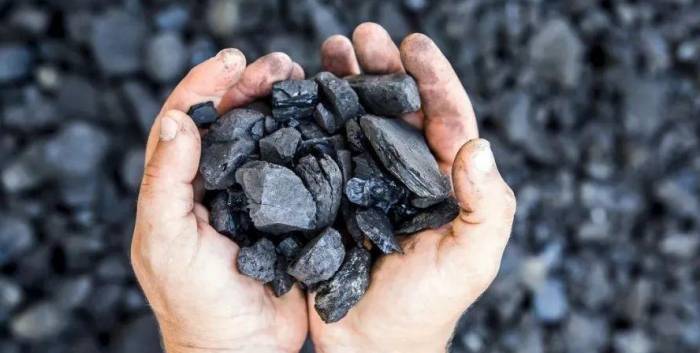Mongolia Raises Coal Prices by 80%
This year, the coal export price from Mongolia has suddenly increased by a staggering 80%, which naturally, Chinese buyers are not willing to accept.
In response, Mongolia has drastically reduced its coal exports to our country, hoping to export coal to Japan and South Korea instead.
Now, Mongolia is also engaging in negotiations with India, aiming to sell its coal, which has been marked up by 80%, to the Indian market.
However, the issue is that Mongolia is a landlocked country, and whether it is exporting to East Asian countries like Japan and South Korea, or to South Asian countries like India, it needs to pass through China to reach its destination.
Some netizens have jokingly suggested: "Our transportation costs should also be increased by 80%!"
01. Turning towards India?
In recent years, Mongolia has been seeking to expand its coal export market to boost its economic development.
Previously, the main export market for Mongolia's coal resources was China.
However, since the end of last year, citing anti-corruption as the reason, Mongolia has canceled its direct sales contracts with China, demanding instead the use of auction prices.
As a result, the current border prices are now 80% higher than the original pithead prices.Thus, Australia became the main target for China's coal imports.
Advertisement
After failing to raise prices on China, India became an important target for Mongolia's coal exports.
India's coal mainly relies on imports, mainly because the quality of domestic coal is low and not suitable for power generation and other purposes. With the continuous increase in India's economic development and the demand for electricity, it is necessary to import coal from abroad to meet domestic electricity needs.
In the past, Indonesia and Australia were the main sources of coal imports, and the scale of coal trade between Mongolia and India was not large, leaving a lot of room for development.
From this perspective, it should be easy for both parties to agree.
But the reality is not so simple.
02, full of difficulties
The advantage of Mongolia's coal exports to India is that it has abundant coal resources and relatively low prices.
However, Mongolia's coal exports also face some challenges, such as weak infrastructure, insufficient transportation capacity, and complicated customs procedures. The most critical issue lies in transportation capacity.
Because Mongolia is a landlocked country, all product exports need to pass through neighboring countries.At the beginning of the year, when Mongolian coal was exported to Japan and South Korea, it had to be transported by railway to our country's Port of Tianjin first, and then transferred to maritime transportation from the Port of Tianjin.
The transportation costs significantly reduced the cost advantage of the coal itself.
For India, importing coal from Indonesia appears to be more convenient; in addition, India also imports coal from Russia.
From this perspective, it seems that Mongolia still faces considerable difficulty in promoting coal to India.
03, The United States is in vain
After India significantly reduced its coal exports to our country at the beginning of the new year, coal exports were redirected to South Korea and Japan.
Unexpectedly, this excited the American media.
Some Americans believe that causing difficulties in China's coal supply is a cause for celebration.
So this time, Americans might be happy for a while, but ultimately, it is in vain.
China's economic development requires a large amount of imported coal, but at the same time, China's vast market also gives us a significant degree of initiative.This year, we have resumed the import of coal from Australia.
Moreover, not long ago, Russia publicly stated that it would prioritize meeting our energy import needs, so Russian coal is also an important import option for us.

Coal from Mongolia is not a necessary choice for us.
Post Comment